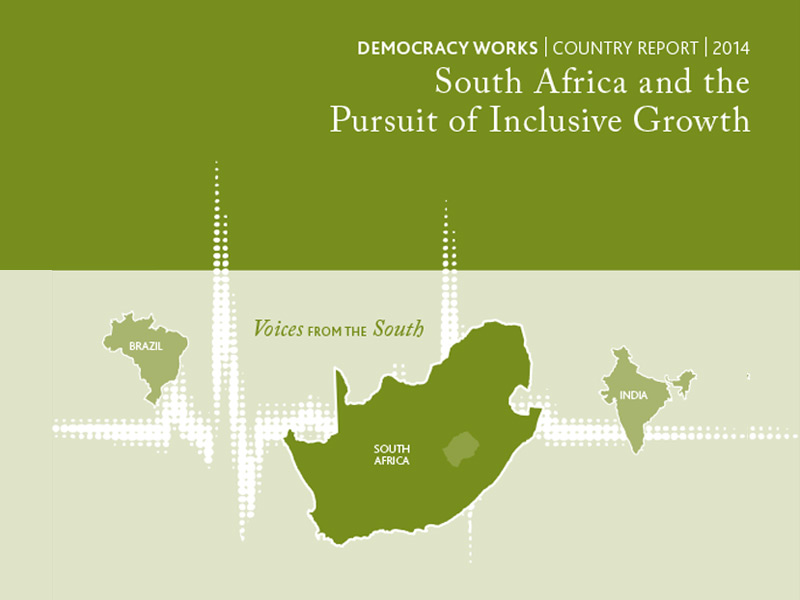Key Points:

- Inclusive growth in South Africa is anchored by its liberal democratic constitution and pursues an economic and social transformation agenda. Under democracy, South Africa has notched up a number of achievements- it remains a stable country that has generated new economic opportunities, reduced poverty to a degree and produced some inspiring innovations.
- However, South Africa faces a number of challenges including: economic challenges, the powerful influence of trade unions, democratic deficits and increasing corruption. The global perception survey on corruption ranked South Africa 69 out of 176 countries surveyed in 2012, a decline from 2011’s 64th position out of 183 countries.
- South Africa has not yet been able to achieve the high levels of growth the country so urgently needs. Rather than focusing on rapid growth and job creation, South Africa has preferred a high wage model. The failure to attain high levels of growth and its capital-intensive nature has reduced South Africa’s ability to address poverty.
- Unfortunately in the context of massive unemployment levels, and a very serious skills shortage, this has not been effective. Fraught state relations with established businesses, poorly-designed BEE policies that promote corrupt relations between business and government and ambiguity about markets and the role of the state, have also impeded growth.
- If South Africa is to become a truly inclusive society, it needs to generate higher rates of growth, sustained for a long period. It needs to deepen and strengthen its form of representative democracy so that government becomes more accountable to the electorate.



